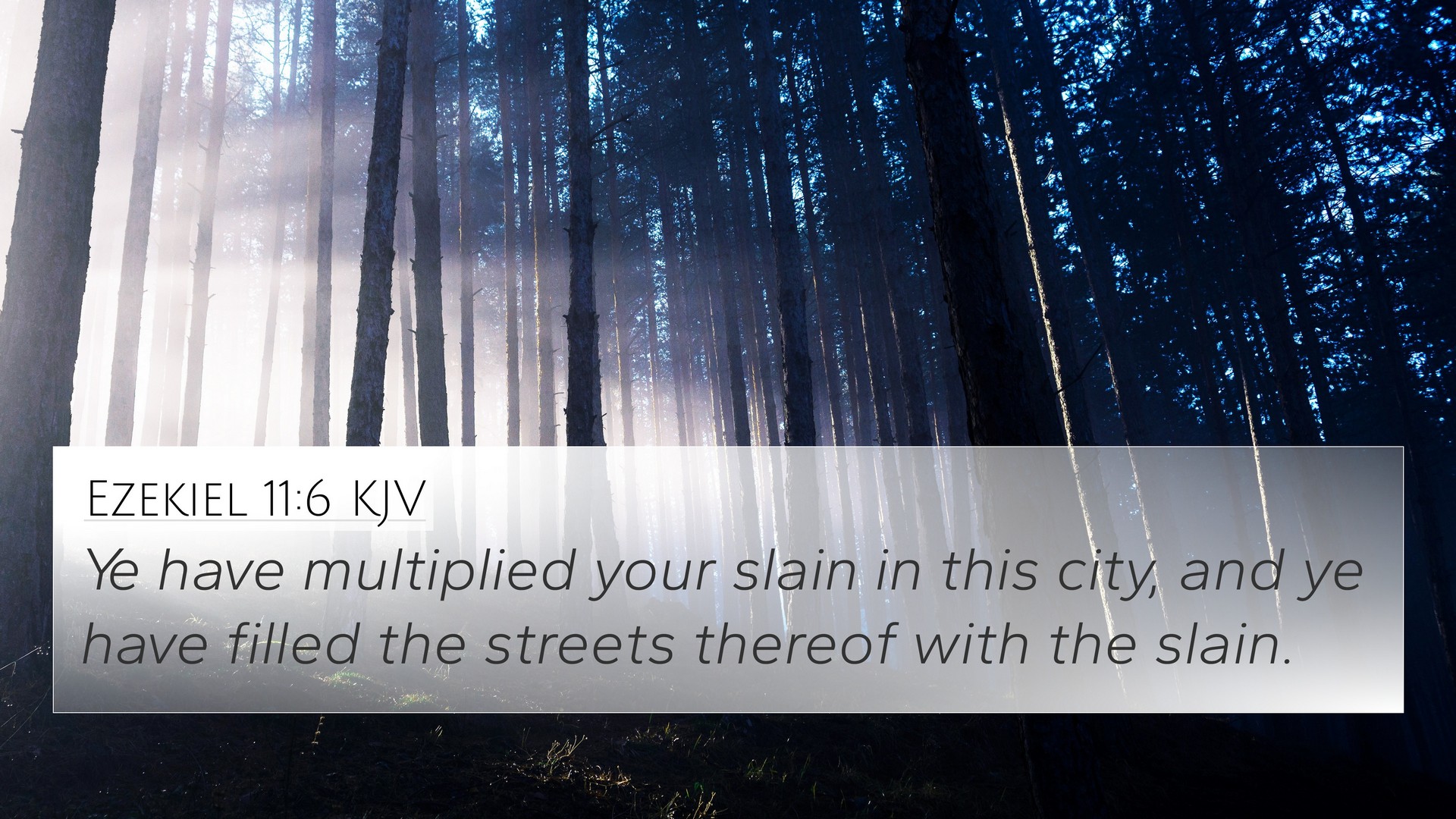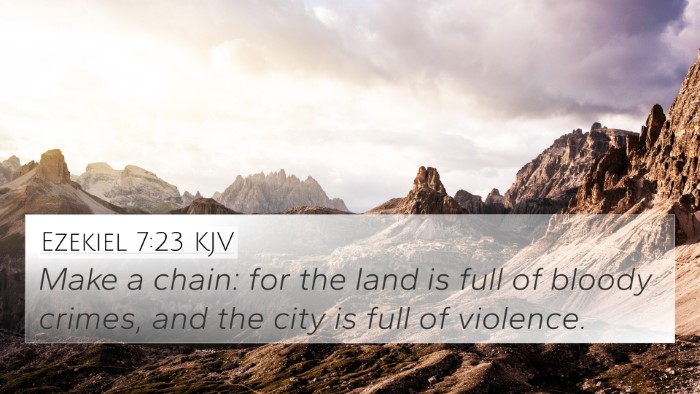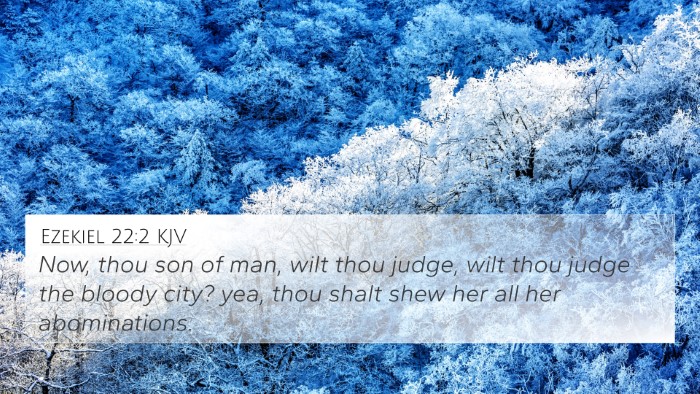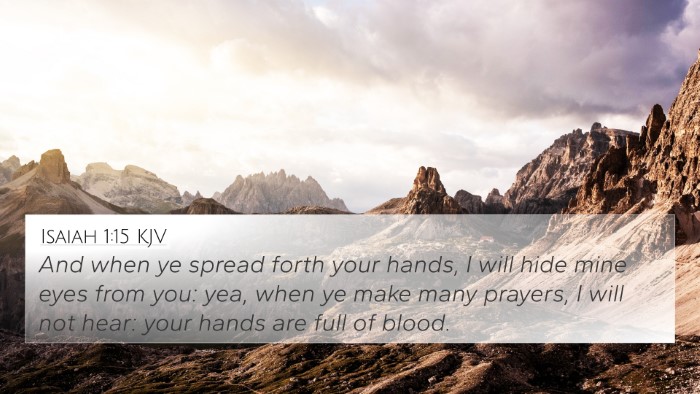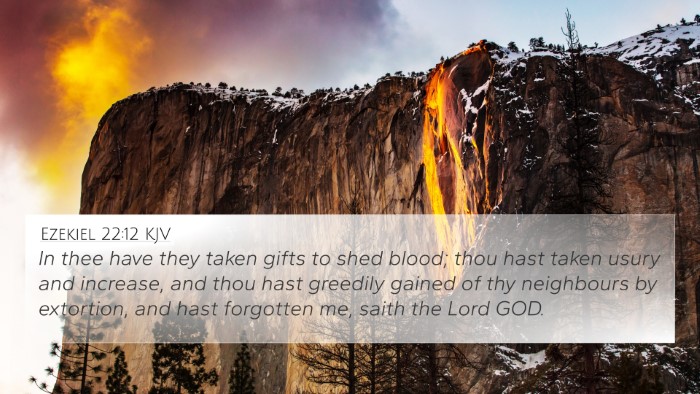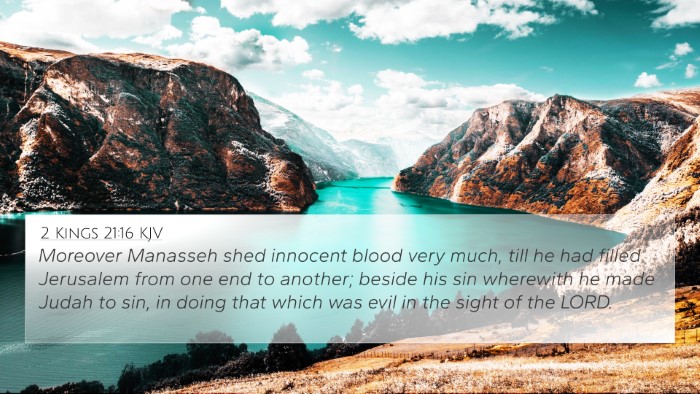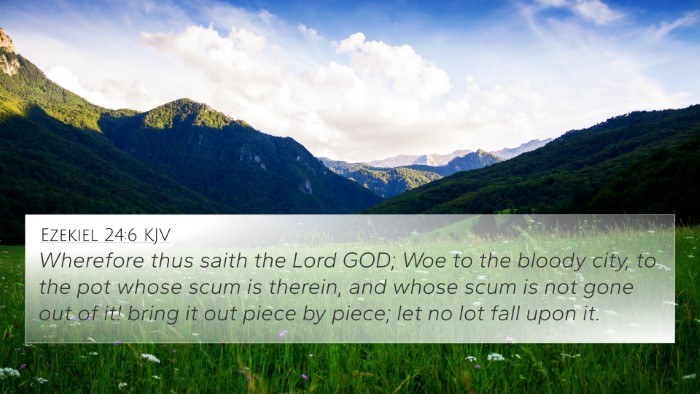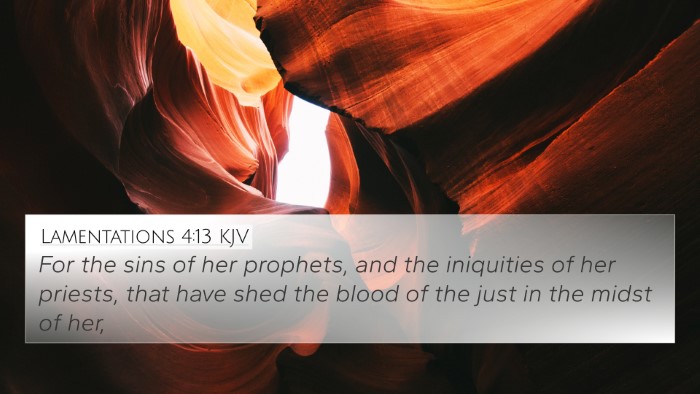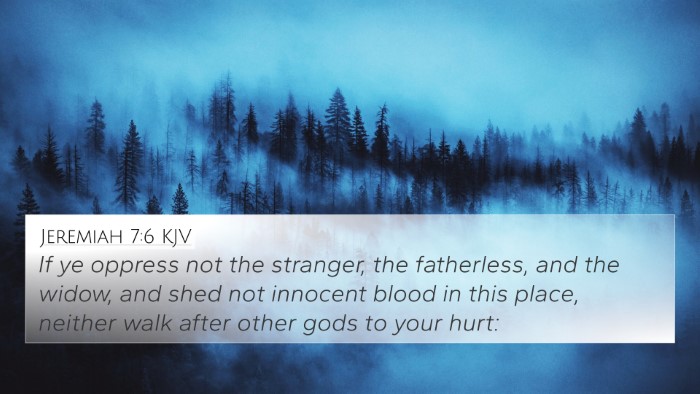Ezekiel 11:6 - Summary and Commentaries
Verse: "Ye have multiplied your slain in this city, and ye have filled the streets thereof with the slain." - Ezekiel 11:6
Meaning and Insights
This verse from the book of Ezekiel serves as a serious indictment of the people of Jerusalem. The prophet Ezekiel, inspired by God, conveys a message that underscores the moral and spiritual decay prevalent in the city, reflecting on the consequences of their actions.
General Overview
Ezekiel's prophecy was primarily addressed to the exiles in Babylon, where he sought to communicate the sins of Jerusalem and the impending judgment that would stem from those sins. In this verse, the specific mention of the 'slain' points to the violence and bloodshed that was rampant, a theme echoed throughout the prophetic literature.
Commentary Insights
- Matthew Henry: Henry notes the gravity of the situation as he reflects on the spiritual blindness of the people. Instead of turning back to God, they engaged in acts of violence and idolatry that led to their own destruction. He highlights that the multiplied slain are a vivid illustration of the consequences of sin where violence becomes a means of life in a corrupted society.
- Albert Barnes: Barnes emphasizes the metaphorical language of the text, indicating that the “slain” can represent not only physical deaths but also the spiritual deadness affecting the people. He points out that such a state severely stifles any relationship with God and leads to judgment. He also connects this to the larger context of divine retribution against the people due to their unfaithfulness.
- Adam Clarke: Clarke’s interpretation delves into the communal aspect of the transgressions. He notes that the reference to the city’s streets filled with the slain signifies collective responsibility for sin. He argues that God is highlighting not merely individual deeds but the societal implications of collective sin. This collective punishment reflects the gravity of turning away from divine statutes.
Cross-References
This verse has several relevant cross-references that provide deeper insight into its meaning and implications:
- Jeremiah 7:17-20: Discusses the sins of the people and the consequences of their actions.
- Isaiah 1:21-23: Illustrates the decline of righteousness in Zion and the resultant turning away from God.
- Matthew 23:37: Jesus laments over Jerusalem, reflecting on its history of violence against God’s messengers.
- Revelation 18:24: Speaks about the blood of prophets and saints being found in the great city, echoing a theme of judgment.
- Lamentations 3:34-36: Emphasizes God's justice in judging a people for their wrongdoing.
- Ezekiel 9:9: Details the iniquities of the city and the consequences of the people's sins.
- Proverbs 1:16: Warns against the ways of violence as a proverbial counsel against wrongdoing.
- Micah 3:10: Condemns those who build Zion with bloodshed, connecting to the idea of moral decay.
- Luke 13:1-5: Jesus discusses the fate of those who perish, highlighting the need for repentance.
- 2 Chronicles 36:15-16: Reflects on God sending warnings to His people and their failure to heed them.
Thematic Connections
This verse not only stands alone but is deeply interconnected with various themes throughout Scripture, reflecting the consequences of sin, divine justice, and the call to repentance. Through cross-referencing Biblical texts, such as the aforementioned, one can identify how Ezekiel's warnings resonate through both the Old and New Testaments, illustrating a continued divine narrative concerning sin and redemption.
Tools for Bible Cross-Referencing
To further study this verse and its connections, utilizing a comprehensive Bible concordance or a Bible cross-reference guide can be beneficial. These tools allow for the identification of related verses, enhancing one's understanding of the messagery threads woven through the Biblical narrative.
Conclusion
In exploring Ezekiel 11:6 through the lens of these commentaries and cross-references, one gains a broader understanding of how the themes of sin, accountability, and divine judgment are crucial to the message of the prophets. This verse invites readers to reflect on their lives, the notion of communal responsibility, and the ever-present call to reconcile with God, as echoed across the entirety of Scripture.
